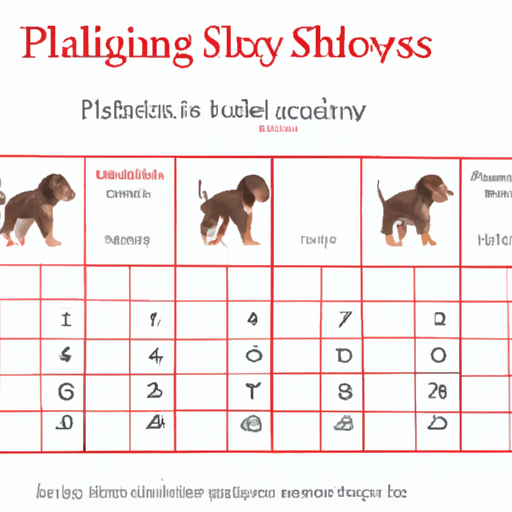Introduction
You’ve been watching your little fur baby grow right before your eyes. One moment they’re a tiny, wriggling mass of fur, and the next, they’re bounding around the house with all the energy in the world. But when does your puppy officially become an adult dog? This is a question many dog caregivers ponder, and it’s crucial for understanding your pet’s health, behavior, and development.
Understanding the Puppy Life Stage
Firstly, it’s essential to grasp what exactly the puppy life stage entails. The puppy phase is a period of rapid growth and development. Puppies are born blind, deaf, and toothless, but within a year, they mature into fully functioning dogs.
Puppyhood can be divided into four main stages:
- Neonatal Period (0-2 weeks)
- Transitional Period (2-4 weeks)
- Socialization Period (4-12 weeks)
- Juvenile Period (3-6 months)
Each stage comes with its own developmental milestones, from opening their eyes to learning social cues from their siblings and mother.
When Does a Puppy Become an Adult?
The transition from puppyhood to adulthood is not as clear-cut as a specific age. It varies depending on the breed and size of the dog.
- Small breeds mature faster and can be considered adult by 9-12 months.
- Medium breeds reach adulthood around 12-16 months.
- Large breeds can take up to 2 years or more to fully mature.
Here’s a simple table illustrating the estimated transition age per breed size:
| Breed Size | Estimated Age of Transition |
|---|---|
| Small | 9-12 months |
| Medium | 12-16 months |
| Large | 18-24 months |
Physical Signs of Adulthood
As a caregiver, you should also be aware of physical signs that signal the transition into adulthood. This includes:
- Teeth: Puppies have 28 deciduous teeth, which are usually replaced by 42 adult teeth by the time they are 6 months old.
- Size and Weight: Puppies will have reached about 75% of their adult height and 90% of their adult weight.
- Sexual Maturity: Female dogs go into their first heat, and male dogs begin to show interest in females.
Behavioral Changes in Adult Dogs
As your puppy matures into an adult dog, you’ll also begin to notice behavioral changes. These may include:
- Decreased Hyperactivity: Adult dogs are generally less hyperactive and have more control over their impulses.
- Increased Confidence: With maturity comes confidence. Adult dogs are more secure in their environment and less likely to exhibit fear-based behaviors.
- Territorial Behavior: Adult dogs may start showing signs of territorial behavior, such as marking.
Adjusting Care for Adult Dogs
As your dog matures, their needs will change. This includes diet, exercise, and healthcare.
- Diet: Adult dogs require fewer calories compared to growing puppies. It’s essential to adjust their diet to prevent obesity.
- Exercise: Adult dogs still need regular exercise to maintain a healthy weight and muscle tone.
- Healthcare: Regular vet check-ups become even more critical as your dog ages to detect any potential health issues early.
The Emotional Transition
The transition from puppy to adult isn’t just physical; it’s also emotional for you as a caregiver. It can be bittersweet to see your once tiny puppy become a full-grown dog. But remember, every stage of your dog’s life brings joy and challenges. Embrace the change and continue to build your bond with your mature pup.
Frequently Asked Questions
1. When is a puppy considered an adult?
The transition from puppyhood to adulthood varies depending on the breed and size of the dog. Small breeds can be considered adults by 9-12 months, medium breeds by 12-16 months, and large breeds by 18-24 months.
2. What physical changes occur as a puppy becomes an adult?
Physical signs of adulthood include the full set of adult teeth, reaching about 75% of their adult height and weight, and sexual maturity.
3. How does behavior change in adult dogs?
Adult dogs are generally less hyperactive, more confident, and may exhibit territorial behaviors.
4. How should I adjust care for my adult dog?
Adjust your dog’s diet to match their lower calorie needs, ensure regular exercise, and maintain regular vet check-ups.
Remember, your puppy’s transition to adulthood is a journey, not a destination. Enjoy every moment, and take pride in knowing you’re doing your best for your furry friend.



